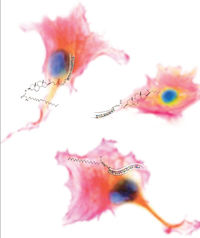Gilead Announces the Advancement of HIV Integrase Inhibitor GS 9137 to a Phase II Clinical Trial
Advertisement
Gilead Sciences, Inc. announced that it has completed a Phase I/II study of JTK-303, or GS 9137, an oral HIV integrase inhibitor for the treatment of HIV licensed from Japan Tobacco (JT) in March 2005. The company anticipates presenting results from the Phase I/II dose-escalation study, which evaluated the tolerability, safety and antiviral activity of GS 9137 in HIV-positive patients, at an upcoming scientific conference. Based on the results of this study, Gilead anticipates evaluating three once-daily doses for GS 9137, 20 mg, 50 mg and 125 mg, each boosted with ritonavir 100 mg in a Phase II clinical trial, which it plans to initiate in the first half of this year.
"The development of therapies targeting new steps of the HIV lifecycle such as integrase is critical, particularly for treatment-experienced patients with limited options," said Norbert Bischofberger, PhD, Executive Vice President, Research and Development, Gilead Sciences. "We are encouraged by the significant viral load reduction observed in HIV-infected patients in the Phase I/II study in which the 50 mg dose, in combination with ritonavir as a boosting agent, showed antiviral activity similar to the most potent protease inhibitors. We are working quickly to finalize the protocol design so that we may initiate larger Phase II and Phase III studies."
Under the terms of the company's agreement with JT, Gilead has exclusive rights to develop and commercialize GS 9137 in all countries of the world, excluding Japan where JT will retain rights. GS 9137 has been previously evaluated in a Phase I study in Japan to assess pharmacokinetics and safety in healthy volunteers. As an investigational compound, GS 9137 has not yet been determined safe or efficacious in humans for its ultimate intended use.






















































